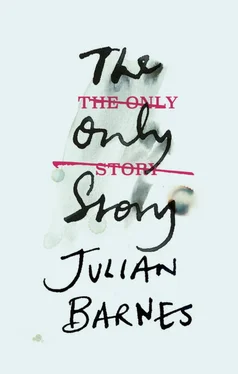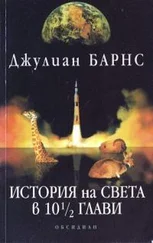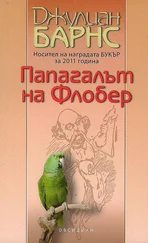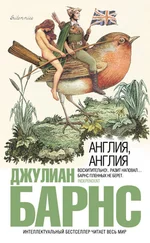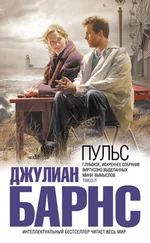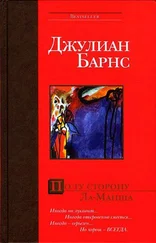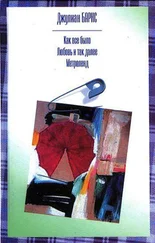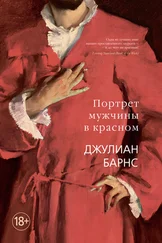For instance, he had noticed during his life one difference between the sexes in the reporting of relationships. When a couple broke up, the woman was more likely to say, ‘It was all fine until x happened.’ The x being a change of circumstances or location, the arrival of an extra child, or, all too often, some routine – or not so routine – infidelity. Whereas the man was more likely to say, ‘I’m afraid it was all wrong from the start.’ And he would be referring to a mutual incompatibility, or a marriage made under duress, or an unrevealed secret on one or both sides, which had later emerged. So she was saying ‘We were happy until,’ while he was saying, ‘We were never really happy.’ And when he had first noticed this discrepancy, he had tried to work out which of them was more likely to be telling the truth; but now, at the other end of his life, he accepted that both were doing so. ‘In love, everything is both true and false; it’s the one subject on which it’s impossible to say anything absurd.’
When he bought a half-share in the Frogworth Valley Artisanal Cheese Company, he had imagined himself as a kind of owner–manager. Co-owner–co-manager. He had a desk and a chair and a rather decrepit computer terminal; he also had his own white coat, though was rarely required to put it on. Hillary ran the office. He had imagined himself running Hillary; but she didn’t need running. He offered to help out and muck in; though mainly he watched things happen around him, and smiled. When Hillary went on holiday, he was allowed to take over her desk.
Where he proved most useful to the company (which only consisted of five people) was stall-holding at farmers’ markets. It wasn’t easy to find someone regular, and Barry, who’d done it for years, was growing unreliable. He was happy to stand in when required. Driving to one of the nearby towns, setting up the stall, laying out the cheeses, their captions, the tasting plates, the plastic cup of toothpicks. He wore a tweed cap and a leather apron, but knew he hardly passed for Somerset born-and-bred. Behind him was a plastic backdrop bearing a colour photograph of happy goats. The other stall-holders were friendly; he would swap two fivers for a tenner, two tenners for a twenty. He explained to customers the age of the cheeses and their characteristics: this one rolled in ash, this in chives, this in crushed chillis. He enjoyed doing all this. It gave him the level of social interaction he required nowadays: cheerful, mutually sustaining, with no question of intimacy – even if he did sometimes flirt lightly with Betty of Betty’s Best Home-Made Pies. It passed the time. Ah, that phrase. A sudden memory of Susan talking about Joan. ‘We’re all just looking for a place of safety. And if you don’t find one, then you have to learn how to pass the time.’ Back then, it had sounded like a counsel of despair; now, it struck him as normal, and emotionally practical.
Despite having no expectation of, nor desire for, some final relationship – or perhaps because of this – he often found himself drawn to all those public displays of wantingness. The personal ads, the ‘soulmates’ columns, the TV dating shows, and those newspaper features where couples go for a meal, mark one another out of ten, report on or confess to inept chopstick behaviour, and then answer (or not) the question of whether they had kissed. ‘A quick hug’ or ‘Only on the cheek’ were frequent responses. Some blokes would answer smugly, ‘A gentleman never tells.’ It was meant to sound sophisticated, but showed far too much class deference: ‘gentlemen’, in his experience, were as boastful as any other males. Still, he followed all these brave, tentative forays of the heart with a mixture of tenderness and scepticism. He hoped it might work out for them, even as he doubted that it would.
‘A gentleman never tells.’ Well, it might occasionally be true. For instance, Uncle Humphrey, stinking of booze and cigars, coming into Susan’s bedroom to demonstrate ‘a party kiss’, and then demanding one (or more) on an annual basis. He doubted Uncle Humph had ‘told’. But this hardly made him a ‘gentleman’ – quite the opposite. Uncle Humph, whose lechery had resulted in Susan not believing in the afterlife. Had his behaviour affected her in other ways? Impossible to tell, at this distance. And so he dismissed that long-dead uncle from his mind.
He preferred to remember Joan. He wished he’d known her as a bounding tennis champion, then as a girl who went off the rails, then as a kept woman. Was the man who kept her, and then dismissed her, a ‘gentleman’? Susan had withheld his name, and there was no finding it now.
He smiled at the thought of Joan. He remembered the yappers, and Sibyl, the elderly golden retriever. Which of them had died first, Joan or Sibyl? She’d asked him to send flowers. Though for whom, was never made clear. Whenever he’d been tempted to get a dog, he heard Joan’s warning voice about them dying on you. So he never got a dog. Nor was he ever tempted to do crosswords or drink gin.
‘Little man, you’ve had a busy day.’
This is the greeting she often sings at you, when you visit her on home leaves.
Except when it is:
‘Clap hands, here comes Charlie,
Clap hands, good time Charlie,
Clap hands, here comes Charlie now.’
Martha, to your continuing surprise, never objects to your visits, and never asks you for money. She looks after her mother herself, with an occasional nurse in attendance. You get the impression that Martha’s husband is doing well in… whatever he does. She told you once, which means you can no longer ask.
Susan’s mind has slipped a little more each time you see her. Short-term memory disappeared a while ago, and long-term memory is a shifting, blurry palimpsest from which clear but unconnected phrases will occasionally be picked out by her fading brain. What often rises to the surface are songs and catchphrases from decades previously.
‘High o’er the fence leaps Sunny Jim,
Force is the food that raises him.’
Some advertising jingle for a breakfast cereal – from her own childhood? from that of her children? In your house, you had Weetabix.
She has long ago ceased to drink; indeed, she has forgotten that she was ever a drinker. She seems to know that you are, or were, something in her life, but not that she once loved you, and you loved her in return. Her brain is ragged, but her mood is strangely stable. The panic and pandemonium have drained out of her. She is alarmed by neither your arrival nor your departure. Her manner is satirical at times, disapproving at others, but always a little superior, as if you aren’t a person of much consequence. You find all this agonising, and try to resist the temptation to believe that you deserve what you are getting.
‘He’s a dirty stop-out, that one,’ she will confide to the nurse in a stage whisper. ‘I could tell you things about him that would make your hair stand on end.’
The nurse looks at you, so you shrug and smile, as if to say, ‘What can you do, it’s so sad, isn’t it?’ while realizing that even now you are betraying her, even in this new and last extremity of hers. Because she could, of course, tell the nurse a thing or two about you, and the nurse’s hair might well stand on end.
You remember her saying that she wasn’t afraid of death, and that her only regret would be over not knowing what happened afterwards. But now she has very little past and – literally – no thought for the future. She has only a ghostplay on some frayed screen of memory, which she takes to be the present.
‘ You ’re a played-out generation.’
‘Got to eat a peck of dirt before you die.’
Читать дальше
